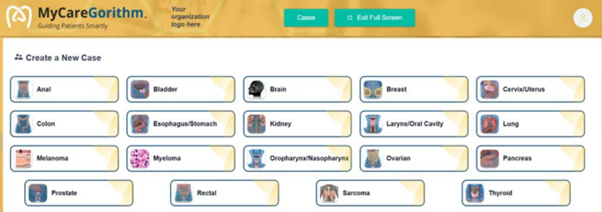As an oncologist, what is the most common emotion you see during a consultation? Confusion, anxiety, fear – all represent the lack of knowledge that a patient enters with in your office, looking for answers and solutions for their disease. But this is where the patient and the doctor often find themselves at a crossroads. Balancing evidence-backed conventional treatments and the required emotional support in a limited consultation time results in overwhelming amounts of information being thrown at the patient, whereas they are looking for a more personalized and holistic experience.
According to the Wall Street Journal, trust in doctors has seen a great decline – from 67% in 2021 to 53% in 2024. This is the largest drop among 23 professions, and it is a concerning number. The increasing lack of confidence is due to communication issues, disjointed trust, and the doctor’s reliance on alternative sources for health information. Many patients report that they feel dismissed, rushed, and unheard during their clinical visits. And as an option, they turn towards social media and Google for medical advice that they should originally be gaining from a doctor.
This communication gap becomes even more critical when discussing treatment options. From chemotherapy, immunotherapy, drug therapy, and radiation to experimental approaches, patients are often overwhelmed by the number of choices – each with its own risks, timelines, and side effects. Without the time or tools to fully process what these treatments mean, many patients walk away more confused than reassured.
With the absence of clear guidance, it’s no surprise that more patients are self-navigating their care journey, exploring and experimenting with treatment options, and relying on online forums – some of which are credible while some are not. But these avenues are not clinical, and it results in complicating care and compromising their health.
What’s missing in this isn’t the access to treatments but an access to understanding them. Patient education is not a choice – it is the foundation of the whole consultation process. When patients are well-informed about their diagnosis and subsequent treatment options, they feel more engaged and confident in their care providers and are more likely to adhere to the plan of action. And for oncologists, this means fewer explanations, better alignment, and more consistent doctor-patient relations.
This is where MyCareGorithm steps in and becomes more than just a digital, multimedia tool – it becomes a trusted bridge between clinical expertise and patient understanding. With a collection of 19 modules and a vast array of oncology resources, the platform can simplify complex medical concepts into clean visual explanations that helps the patient grasp their diagnosis, various treatment pathways, and the reasoning behind every decision.

The modules are built to be interactive, intuitive, and tailored to every patient’s needs. Whether it’s understanding how radiation therapy works, comparing their surgery options, or knowing the anatomy and staging of their cancer, MyCareGorithm equips patients with the knowledge they need in a format they can process – in their own time and space. This accessibility not only improves comprehension but also establishes a stronger relationship between the patient and their care team.
Across various oncology specialties, MyCareGorithm has consistently shown positive outcomes.
- Through our pilot studies, we determined that using visuals helped save 15 minutes per consultation, and 2 hours per week, increasing the clinical workflow efficiency.
- Obtained high rates of patient, caregiver, and provider satisfaction with the initial consultation.
- Increased the patient retention rates in institutions.
By integrating visual intelligence into the core of the consultation, MyCareGorithm is not just filling a gap – it is rebuilding trust. And in an era where the information is everywhere but understanding is scarce, the need for clear, credible, and compassionate communication has never been greater. Not as a replacement, but as an enhancement.
It is time to reimagine oncology consultations as a shared journey of understanding and empowerment rather than a one-sided conversation.
© 2025 MyCareGorithm. All rights reserved. This presentation, including all text, images, graphics, and content, is protected by copyright law and is the exclusive property of MyCareGorithm. No part of this presentation may be copied, reproduced, modified, distributed, shared, or transmitted in any form or by any means without the prior written permission of MyCareGorithm. Unauthorized use may result in legal action.